The 50 best TV dramas of all time – ranked
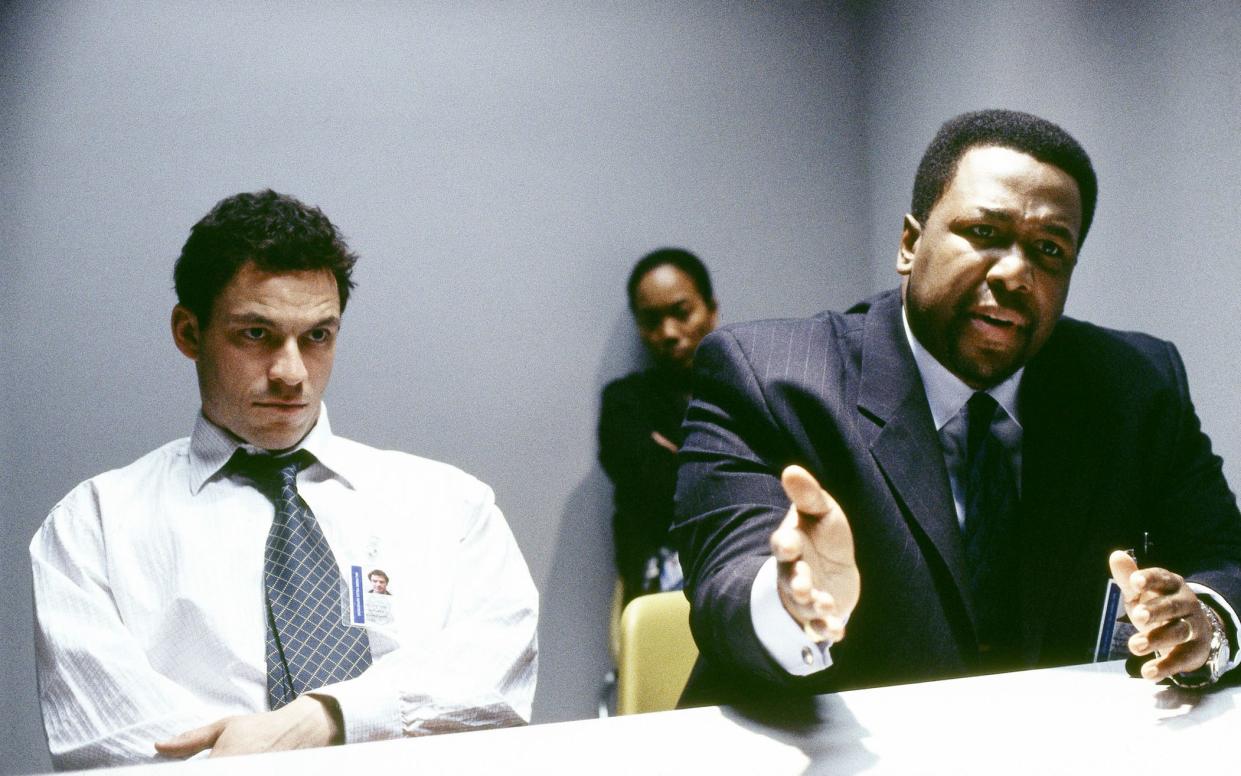
This is not a history of television drama. The attempt here has been to judge purely on quality, not contemporary impact or abiding influence. That means it’s subjective, and so if it makes you really, really angry that your number one all time life-changing must-see isn’t here… that’s all for the good. Any TV show that people care about is better than one that they don’t.
Ranking all of the TV dramas ever made is a reminder that it requires neither money, nor big names, nor timely scheduling nor a marketing blitz to create great television. Ask any actor what made them want to be part of this or that newly-minted production and they will all tell you “the script”. It’s the writing where it all starts. One of the reasons television has taken over from cinema as the natural home of quality drama is because the economics of the screen trade have seen most of the best writers shift from film to TV. The best actors have followed. Add to this that technology has meant that we’ve also never had better access to the gems of the past, and we might conclude (to borrow a phrase) that your hardened sofa surfer has never had it so good. That we get to argue about what is the very best of all this goodness is a privilege, not a chore.
50. Pride and Prejudice (1995)
Colin Firth as Darcy emerging from the lake is one of the defining moments in British television, but this Jane Austen adaptation is much more than just a benchmark for British period drama. Pride and Prejudice had been adapted three times over before Andrew Davies got his hands on it, bringing a new approach: it was possible to stay true to the novel’s subtle ironies and social observations, he reasoned, while still injecting a modern sensibility and yes, some sexiness. It worked then (ten million people tuned in) and it works now.
Watch it on: BBC iPlayer
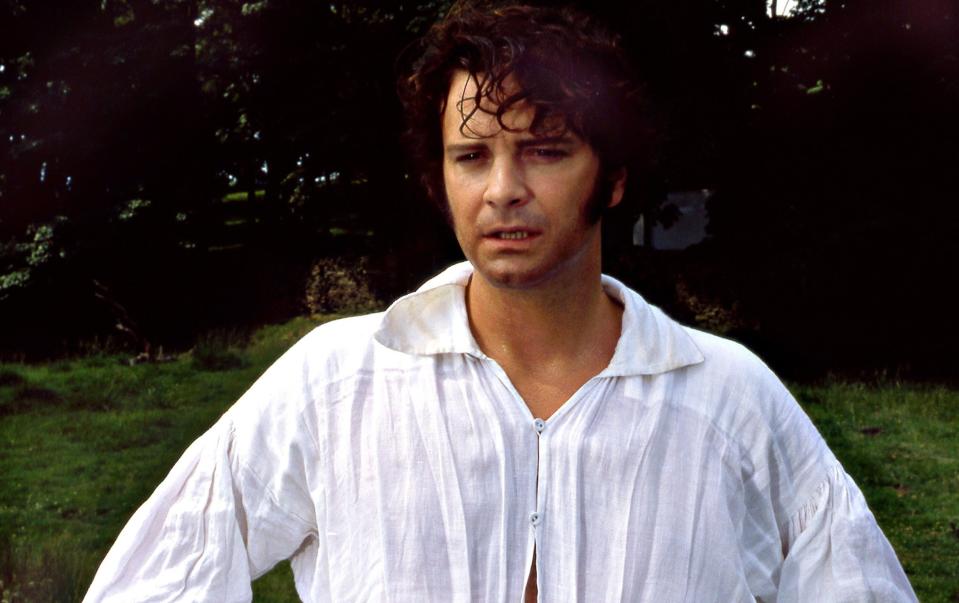
49. Shameless (2004-2013)
The challenge of capturing working-class culture on screen has eluded most, largely because traditionally, people who got to make TV weren’t working class. Paul Abbott’s tales of the Gallagher family on the fictional Chatsworth Estate changed all that. A riotous excursion that neither romanticised nor spoke down, it was extremely funny, light on its feet but most of all felt true. David Threlfall as Frank Gallagher quickly found himself in the pantheon of great TV grotesques, sitting proudly alongside The Royle Family’s Jim Royle and sharing a tinny. (Read our final Shameless review)
Watch it on: channel4.com, Netflix or Apple TV
48. The English (2022)
With The Shadow Line, The Honourable Woman and Black Earth Rising, Hugo Blick can claim to be Britain’s most original TV writer and director. But it was with The English (a Western, ironically) that he really let fly. A soaring epic in which the landscapes speak and the characters very often stay silent, it is vintage Blick in that he is less interested in foursquare plotting than colour and feel. Blick is a former actor and what marks out his dramas is the performances he elicits. Emily Blunt is at her very best as Lady Cornelia Locke, arriving in Kansas to investigate the death of her son; and Rafe Spall always seems to go to another plane entirely when working for Blick (see also, The Shadow Line). This is singular British drama that couldn’t be by anyone else. (Read our The English review)
Watch it on: BBC iPlayer or Amazon Prime Video
47. Gomorrah (2014-2021)
Did we really need another drama about the Mafia? Most people thought not, which is why most people missed this instant classic. Based on Roberto Saviano’s 2006 non-fiction expose Gomorrah – Italy’s Other Mafia (for which Saviano had to go in to hiding). Gomorrah is brilliantly specific on the workings of the Camorra, the Neapolitan mafia, to a degree that makes the series feel almost fly on the wall. Its trump card comes in the storyline of Ciro “l’Immortale” Di Marzio (Marco D’Amore), whose rites of passage and route to power echo Michael Corleone in The Godfather. (Read our final Gomorrah review)
Watch it on: Amazon Prime Video, Disney+ or Apple TV
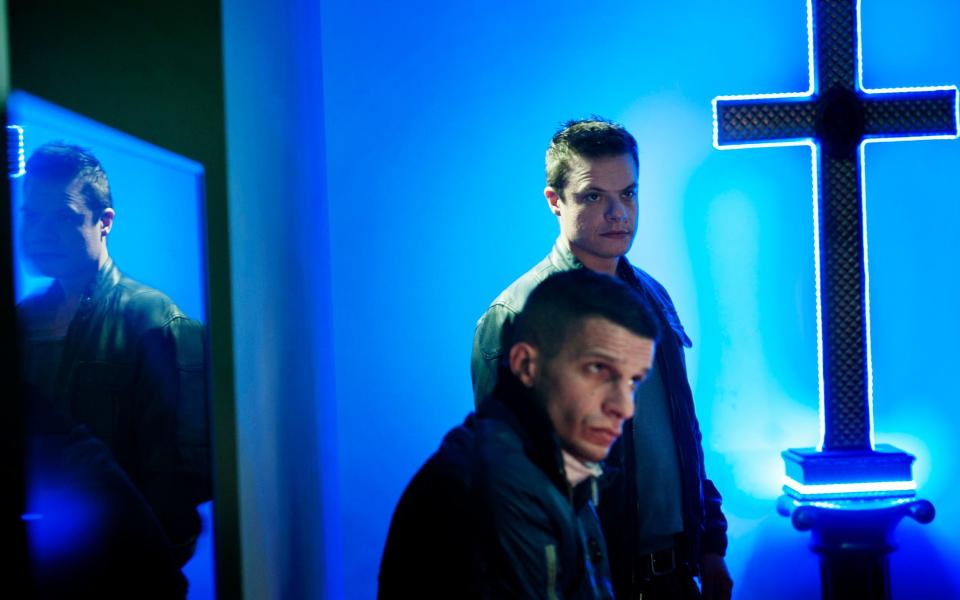
46. State of Play (2003)
Paul Abbott came from Clocking Off and moved on to create Shameless, but between the two he wrote this bomb blast of a political thriller. John Simm was in his element as Cal McCaffrey, a journalist who discovers a link between the death of a teenager and that of a young MP’s researcher. Abbott is scathing in his critique of a self-serving political class – one that still feels valid – but most dazzling is his ability to juggle plotlines, foreground new characters and maintain tension. The acting is of course superb (David Morrissey, Kelly Macdonald, Bill Nighy) but State of Play is a technical tour de force too.
Watch it on: Amazon Prime Video or ITVX
45. Utopia (2013-2014)
Marc Munden (National Treasure, The Mark of Cain) was already one of Britain’s most original directors when he was paired with Dennis Kelly (Pulling, Matilda the Musical, The Third Day) for this warped, nearly undefinable slab of grand guignol. It tells of a conspiracy hidden inside a graphic novel, but Munden’s astonishing visuals and Kelly’s high-wire plotting take the grand conspiracy trope and feeds it to itself. A violent, fever dream of a series that looks and sounds like nothing else. (Read our final Utopia review)
Watch it on: Amazon Prime Video
44. Wolf Hall (2015)
New camera technologies allowed Peter Kosminksy to film this adaptation of Hilary Mantel’s first two Thomas Cromwell novels in near darkness. Add to that Kosminsky persuading Mark Rylance to come to the small screen and you had a tableau full of stillness (Rylance barely moves) and foreboding. Peter Straughan wrote the script, having just come from the movie adaptation of Tinker, Tailor, Soldier Spy. He brought with him layers of subtlety and subterfuge, with Rylance inimitable as his doublet-and-hose Tudor Smiley. (Read our final Wolf Hall review)
Watch it on: BBC iPlayer or Amazon Prime Video
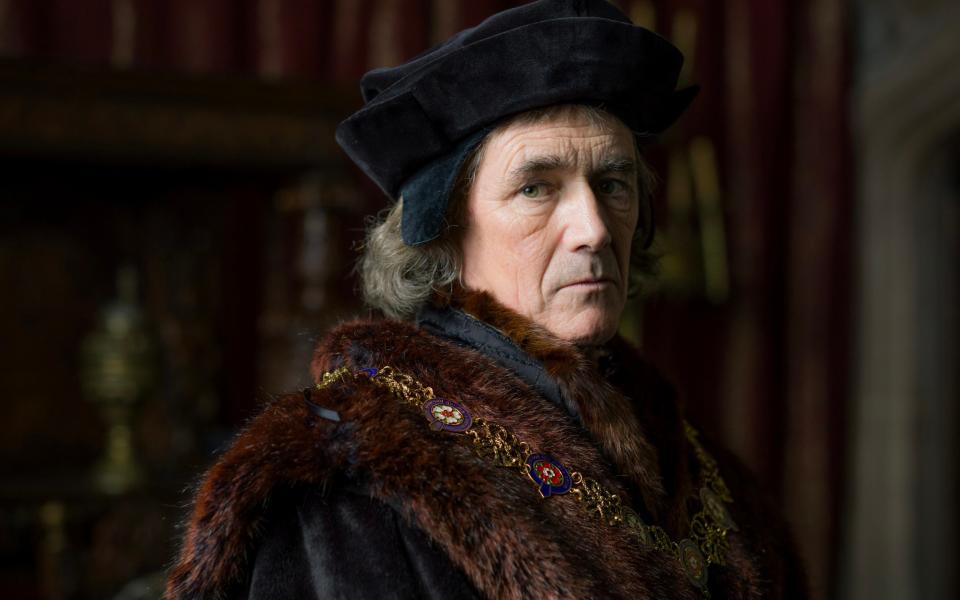
43. Star Trek (1966-1969)
If the presiding mode in modern television is cynicism, Star Trek was boldly upbeat. Gene Roddenbury’s original series famously had an Asian man, a Russian character and a black woman among the leads, yet the fact that this was highly unusual in television of the day went without comment on the bridge of the Starship enterprise. Instead, early Star Trek episodes imagined a future where American exceptionalism extended in to the farthest reaches of the galaxy, spreading the American dream and the wonders of its way of life as they went. The brilliance of the writing was to sell this allegory without overselling it. If the story’s no good, Roddenbury knew, they’ll switch off. It’s been true in television ever since.
Watch it on: Amazon Prime Video
42. The Singing Detective (1986)
The second Dennis Potter on this list introduced elements of Potter’s autobiography in to the mix, while keeping his trademark surreal musical interludes. As a result, The Singing Detective is denser and more allusive than Pennies from Heaven: mystery writer Philip E Marlow (Michael Gambon) is in hospital with psoriatic arthropathy (a disease from which Potter also suffered), working on a Chandler-esque crime novel called ‘The Singing Detective’. As Marlow is revealed to be an unreliable narrator at best, Potter’s take on all life being memory and dreams plays out in a dazzling lattice-work of fictions.
Watch it on: BBC iPlayer
41. The Twilight Zone (1959-1964)
Not only did The Twilight Zone introduce the idea of an anthology series, as well as bringing fantasy, genre fiction and the macabre in to the mainstream, but it also brought sci-fi’s greatest trick to television. This is to write about the issues of the day through an alternative prism, and if that sounds reductive, many, if not all of the episodes from the original five seasons remain first rate. Try ‘The Monsters Are Due on Maple Street’ for how the arrival of ‘aliens’ can induce society to turn on itself. Then have a look at the papers.
Watch it on: Amazon Prime Video
40. I, Claudius (1976)
Robert Graves’ tales of the early Roman Empire were brought to seething life via the narration of Derek Jacobi as the elderly Emperor Claudius. Told in flashback, Jack Pulman’s scripts elevate what now looks like dated production values because they remain spry and funny, and Pulman knew that in the right hands, nothing plays better than devious machinations (with the attendant dramatic irony). I, Claudius, it barely needs saying, has ‘the right hands’. Not just Jacobi but Brian Blessed as Augustus (before he went full Brian Blessed); John Hurt as Caligula and a simply mesmeric Sian Phillips as an unrepentantly dastardly Livia.
Watch it on: BBC iPlayer
39. Game of Thrones (2011-2019)
A show sullied by a duff ending should instead be remembered for battle sequences so spectacular they nearly ended war films and plot switchbacks that left millions agog. There was always more to Game of Thrones, much more, than swords and sorcery (and blood and boobs). The game of the title was mostly a cloak-and-dagger whispering match that underpinned a ruthless trawl through power politics, predicated on a feudal system where life is short and the ends always justified the means. We came for the fighting but we stayed for the roiling intrigue. (Read our final Game of Thrones review)
Watch it on: Amazon Prime Video
38. Twin Peaks (1990-1991)
Cult TV almost from the moment it was broadcast, David Lynch’s murder mystery was one of modern television’s great talking points. Not in a “Who shot JR?” way (although every new viewer is desperate to know who killed Laura Palmer) but in its mastery of tone. Weird is not always wonderful, but Twin Peaks was the definition of otherworldly, setting up viewers to expect familiar tropes and then pulling the rug at every turn. Before TP, experimentation was thought to be commercial suicide. Every show that takes a left turn since owes it a debt.
Watch it on: Paramount+
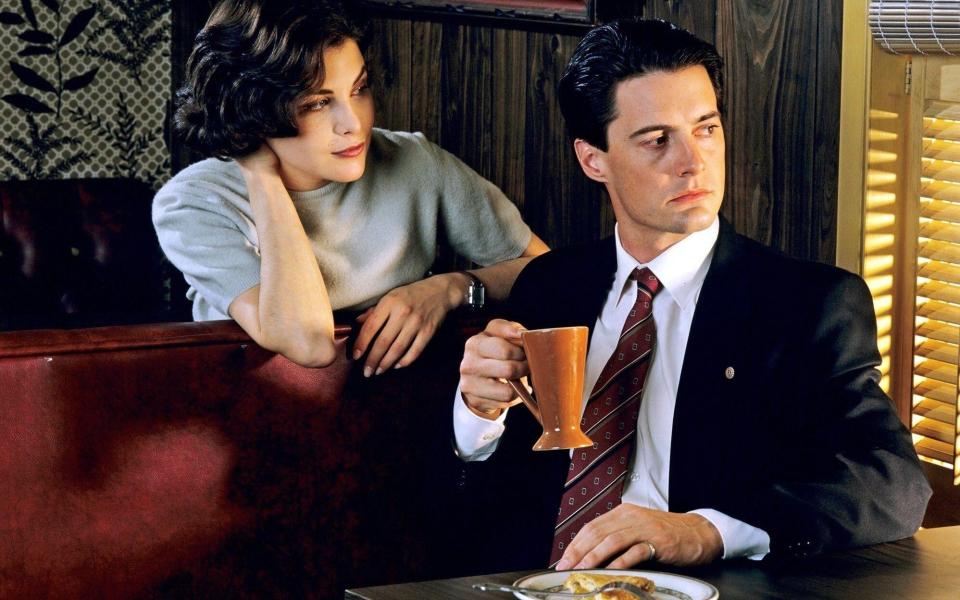
37. Borgen (2010-2022)
The high watermark of the Scandi noir invasion involved no killings and wasn’t noir. Instead, a story about Danish coalition politics showed that drama is conflict wherever you find it (and that subtitles, far from being off-putting, actually made people watch more carefully). While it’s always been easy to hold Scandinavian countries as somehow more functional than our own, Borgen showed that beneath the achingly cool furniture and the just-so lamps, politics is just war with better manners. Tak! (Read our final Borgen review)
Watch it on: Netflix
36. Edge of Darkness (1985)
Edge of Darkness reads differently now that we are living in an age where vast conspiracy theories are common currency. But it is no less compelling: Bob Peck is the local policeman who stumbles on an international scandal that brings him to the attention of some seriously shady powers of which we know little. The plot is fiendishly complex and questions are left (deliberately, to my mind) unresolved but as with The Wire twenty years later, you don’t have to catch every beat to feel the overall flow: profit, political gain and power’s propensity to serve itself are themes that have not aged.
Watch it on: Amazon Prime Video, Netflix or Apple TV
35. My Brilliant Friend (2018-present)
It is tempting to say that this sensational adaptation of Elena Ferrante’s popular bildungsroman would have received more acclaim had it been about two boys. On the other hand, it stands as a wonderful counterpoint to all of the male-led drama that dominated HBO’s output in the naughts. The story of two young women growing up in Naples, it should be figure one in the argument that prestige television has taken over from novels as the primary medium for fiction: My Brilliant Friend is subtle, beautifully shot, immersive, and wins you over by degree rather than with hammer blows of plotting and set-pieces. There is no higher praise than to say it is as good as the books on which it is based. (Read our latest My Brilliant Friend review)
Watch it on: Sky or Now
34. Prime Suspect (1991-2006)
Lynda LaPlante’s original script tore up the template for premium crime drama: not only was Helen Mirren given license to reanimate her own career in the unapologetically feminist character of Jane Tennison (the first woman to lead a murder enquiry for Scotland Yard, so the story said), but the crimes she investigated were unremittingly grim. The whole notion of whodunit was turned on its head: right up until the end you had no idea, and the not knowing was as agonising for the audience as it was for Tennison and co.
Watch it on: ITVX
33. Threads (1984)
From the seedbed of Cold War unease and increasingly graphic public information films about a coming nuclear storm came this searingly realistic feature. Directed by Mick Jackson, a BBC documentary maker, it is still a gut-punch of a watch today, even separate from the historical context – this because of the script from Kes’s Barry Hines, who grounds the unfurling horror in character. Hence, when the thermonuclear blast hits, what happens to humanity is personalised and doubly horrifying. A whole genre of dystopian small screen fiction has followed but Threads, where everything is so normal until it isn’t, remains the defining existential horror.
Watch it on: Amazon Prime Video
32. Talking Heads (1988-2020)
Television drama had covered vast worlds, wars and empires by the time Alan Bennett’s monologues hit screens, but in the hands of Eileen Atkins, Stephanie Cole and perhaps most memorably Thora Hird, Talking Heads was a reminder that TV is also the most intimate medium. Bennett’s tales of thwarted women and dying lights were poignant and powerful precisely because they captured such loneliness in those faces on that small box. In the theatre, by comparison, you could never see so much heartache or humour in a single lost glance. (Read one of our Talking Heads reboot reviews)
Watch it on: Amazon Prime Video or BBC iPlayer
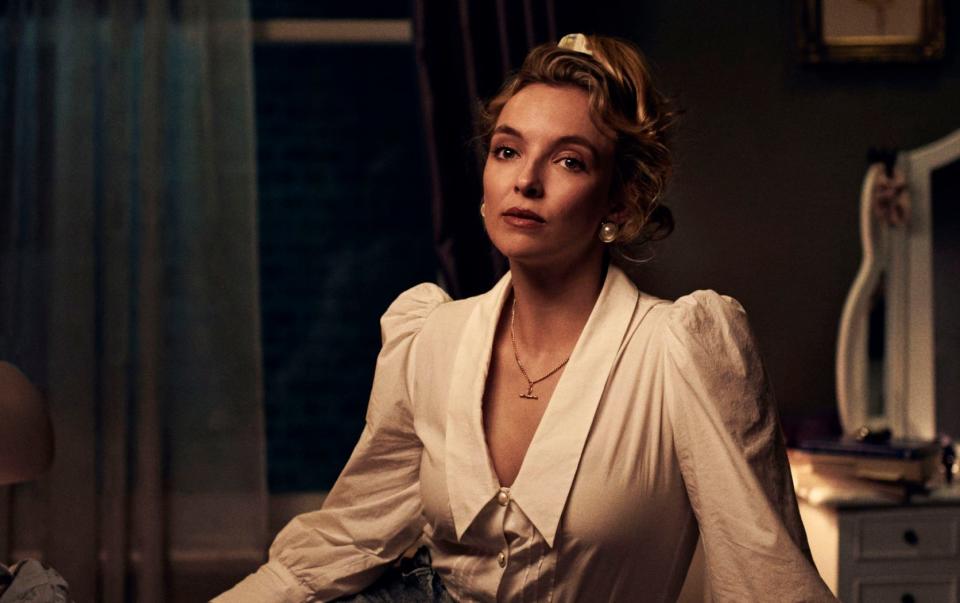
31. Tinker, Tailor, Soldier, Spy (1979)
The highest compliment Arthur Hopcraft and Jonathan Powell’s George Smiley adaptations can be paid is that they capture every nuance of John le Carre’s original. Given that so much in the espionage world is inferred or unsaid, that leaves a lot of heavy lifting in the hands of the actors, but in the stillness and balm of Alec Guinness, Michael Aldridge and a brilliant Beryl Reid, this story of how George Smiley is brought back to “The Circus” to root out some errant clowns is the ur-text for what we now call “psychological thrillers”.
Watch it on: Amazon Prime Video or Apple TV
30. Happy Valley (2014-2023)
Over three series, broadcast across a decade, Sally Wainwright’s characters and community seeped in to the national consciousness. A portrait of how small town communities stick together as much as how they fall apart, Happy Valley has everything: one of the greatest central characters of them all, in Sarah Lancashire’s magnificent Catherine Cawood, one of the greatest nemeses, in James Norton’s Tommy Lee Royce, a thriller that gripped from first credits to last and, to cap it all, delectable dialogue from a writer with perfect pitch. (Read our final Happy Valley review)
Watch it on: BBC iPlayer or Netflix
29. Patrick Melrose (2018)
David “One Day” Nicholls gave Edward St Aubyn’s magisterial series of novels the treatment they deserved in this ferocious study of childhood abuse and the lifetime of trauma that follows. In the form of well-heeled drug addict Patrick Melrose – battling to stay ahead of his past and eventually escape it – Benedict Cumberbatch was gifted the role of a lifetime and he grabbed it with both hands, in probably his finest performance. Mostly, though, Patrick Melrose captures St Aubyn’s wicked wit, emotional precision and crushing pathos. My most strident hope when PM was released was that they wouldn’t mess it up. They didn’t. (Read our final Patrick Melrose review)
Watch it on: Amazon Prime Video or Apple TV
28. Bleak House (2005)
It has long been a contention that had Dickens been writing in the 21st century, he’d have been doing serial television. This Bleak House was serial television trying to imagine what that might have looked like. Because the original novel was published in smaller instalments, Andrew Davies’ adaptation went out twice weekly in half-hours, straight after EastEnders, with a cast that introduced the world to both Carey Mulligan and Anna Maxwell Martin. It worked: at a stroke, period drama was snatched from the puffy-shirted arms of Mr Darcy and thrust back in to the mainstream.
Watch it on: BBC iPlayer
27. Hill St Blues (1981-1987)
A large part of television’s development over the decades has been to fuse the Velcro, mass appeal of soap operas with more serious and complex forms. With Hill St Blues, producers Steven Bochco and Michael Kozoll took soap’s open-ended storylines and community-style ensemble casts and moulded them in to police drama. At the same time, they jettisoned any notion that TV need be aspirational: HSB was down and dirty, from its early use of the jerky camerawork that would become a standard emblem for naturalism, to its stories about the reality of life on the streets.
Watch it on: Amazon Prime Video, channel4.com, Disney+ or Apple TV
26. Oz (1997-2003)
Before The Sopranos and before The Wire, Oz was a statement of intent. HBO had set out to redefine what television was going to try to be, and this drama, set in the fictional Oswald State Correctional Facility, laid down the new rules. Mostly, there were no rules: even now Oz is shockingly violent and graphic, leaving no taboo unturned. It’s also still engrossing, locking viewers in to a claustrophobia way beyond pat redemption arcs and hero-shall-rise tropes. The Oz in the title was a deliberate reference to The Wizard… and one of the series’ early taglines was: “It’s no place like home.”
Watch it on: Sky or Apple TV
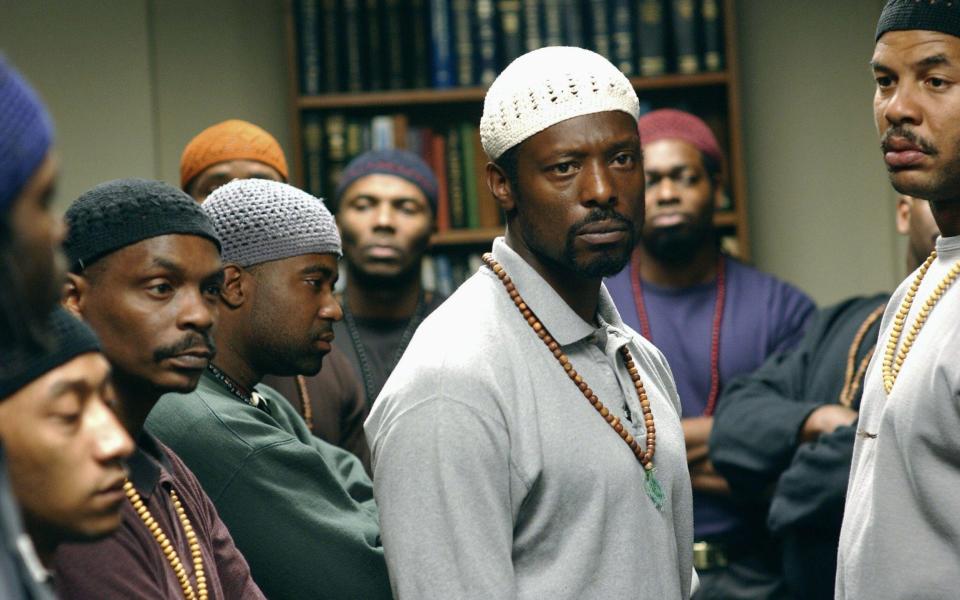
25. Atlanta (2016-2022)
Donald “Childish Gambino” Glover’s experimental comedy-drama is, at least in the log line, about a college dropout Earn (Glover) who decides to try and manage his cousin’s rap career in the Atlanta music scene. But it soon spirals off in to something very different – almost an anthology of effervescent half hours, with contiguous episodes sometimes having very little to do with one another. Weird isn’t always wonderful, but Atlanta pulls it off by cleaving to that sitcom staple – a group of characters who it’s always fun to hang with. No wonder that the careers of LaKeith Stanfield, Brian Tyree Henry and Glover himself have since gone interstellar. (Read one of our Atlanta reviews)
Watch it on: Disney+ or Apple TV
24. The Naked Civil Servant (1975)
It’s hard to look past John Hurt’s tender, touching, ultimately towering performance in the lead role in Philip Mackie’s adaptation of Quentin Crisp’s autobiography. It made Crisp a household name and Hurt an instant star. Crisp was out and proud in London in the 30s but even by 1975, when The Naked Civil Servant was broadcast, sympathetic portrayals of openly gay men were a rarity on television. Hurt captured the courage and the relish in Crisp’s iconoclasm, while director Jack Gold imbued every scene with Crisp’s lyricism and wit.
Watch it on: Amazon Prime Video or Apple TV
23. ER (1994-2009)
The greatest hospital drama of them all turned the triaging of multiple plotlines – some soapy and romantic, others acutely medical – into an artform. It was a consistent marvel both editorially and technically: think live shows, tracking shots, a feeling that you had literally been crashed through those double doors on a gurney and thrust in to the unfurling chaos for 45 minutes. And yet like The West Wing, ER was an American network show: it was beholden, ultimately, to getting and keeping a large audience week-in, week-out. That it did as much for 15 years, with 124 Emmy nominations, speaks to its quality. (Read our final ER review)
Watch it on: channel4.com or Sky
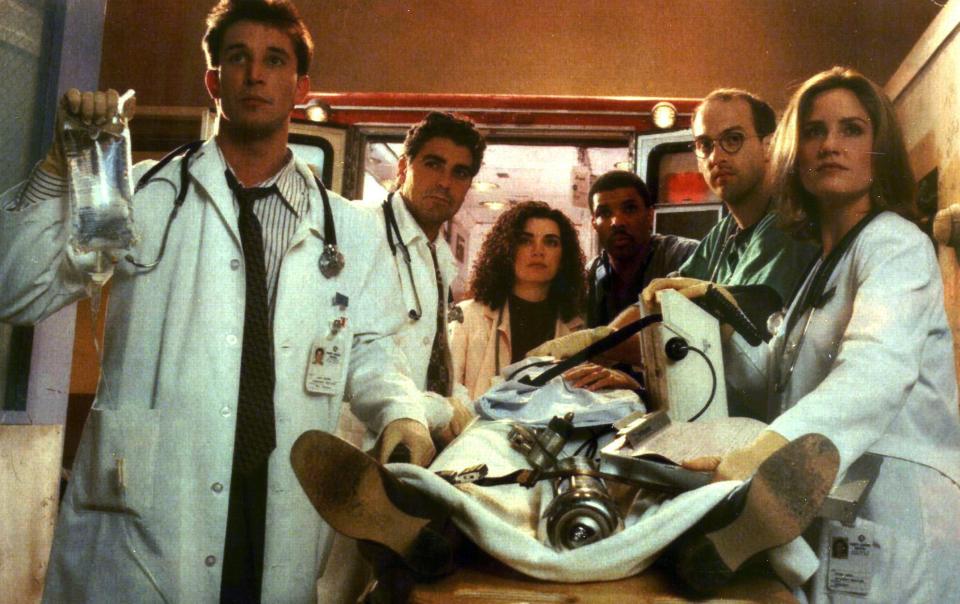
22. Six Feet Under (2001-2005)
Although best known for one of TV’s greatest endings (a staggering montage in which every one of the characters is fast forwarded to the end of their lives and shown dying), with hindsight, Six Feet Under sits most comfortably alongside The Sopranos as one of HBO’s early-naughts, all-conquering family dramas. The son of a funeral director (Peter Krause) is – reluctantly – left with the family funeral home in the wake of his father’s death. He partners up with his brother (Michael C Hall), and together, with the corpses in the basement, they battle through life while surrounded by death. Every episode began with someone dying, which meant that across five series, there has been no more profound (and darkly comic) exploration of mortality.
Watch it on: Amazon Prime Video, Netflix or Apple TV
21. Red Riding (2009)
Atmosphere is hard to create and sustain on television, but this three-part adaptation of David Peace’s wrecking-ball novels was suffused with the stench of depravity. Set in West Yorkshire (“in the North, where we do what we want”), against the backdrop of the Ripper killings, Tony Grisoni’s scripts were unrelenting: West Yorkshire police were corrupt psychopaths almost to a man. But it was the sense of place as poison, corruption almost in the water, that made Red Riding so remarkable. Directors Julian Jarrold and James Marsh between them crafted a new grammar for Northern noir. (Read our final Red Riding review)
Watch it on: ITVX
20. Band of Brothers (2001)
There is a Band of Brothers brotherhood that links a ludicrous proportion of famous male actors working today – Damian Lewis, Stephen Graham, Michael Fassbender, Dexter Fletcher, Dominic Cooper, Tom Hardy, James McAvoy, Simon Pegg, Andrew Scott, Marc Warren – back to HBO’s Second World War classic. When it launched in 2001, this was a new calibre of war story, with no expense spared in bringing every detail of the horrors visited on “Easy” Company through France and Germany to the screen. HBO’s The Pacific and more recently Masters of the Air have attempted to repeat the trick but nothing has ever recaptured BoB’s astonishing intensity.
Watch it on: Sky or Now
19. Cracker (1993-2006)
Years before American cable television made (hugely) flawed male heroes its stock in trade, Jimmy McGovern’s Fitz (wholly embodied by Robbie Coltrane) smashed through the screen. A boozer, a gambler, a model of excess and recklessness, McGovern married an unforgettable lead character with an ingenious premise. Because Fitz was a criminal psychologist, not a detective, Cracker existed in a world of moral relativism, beyond notions of good guys and bad guys, clear patterns of right and wrong. It’s a murkier, more realistic netherworld that the best crime drama has tried to inhabit ever since.
Watch it on: ITVX
18. Succession (2018-2023)
At a time when big-ticket TV was all about fantasy, the British writer Jesse Armstrong created this magnificent contemporary satire. It was centred on a brood of quasi-Murdochs squabbling about who would get Daddy’s empire, except that Daddy, in the form of Logan Roy (Brian Cox), wasn’t quite ready to hand over the reins. From such King Lear-like beginnings grew a delicious, acerbic satire on the 1%, one that proved that dramas don’t need to have a recognisable moral schema to be compelling. (Read our final Succession review)
Watch it on: Sky or Now
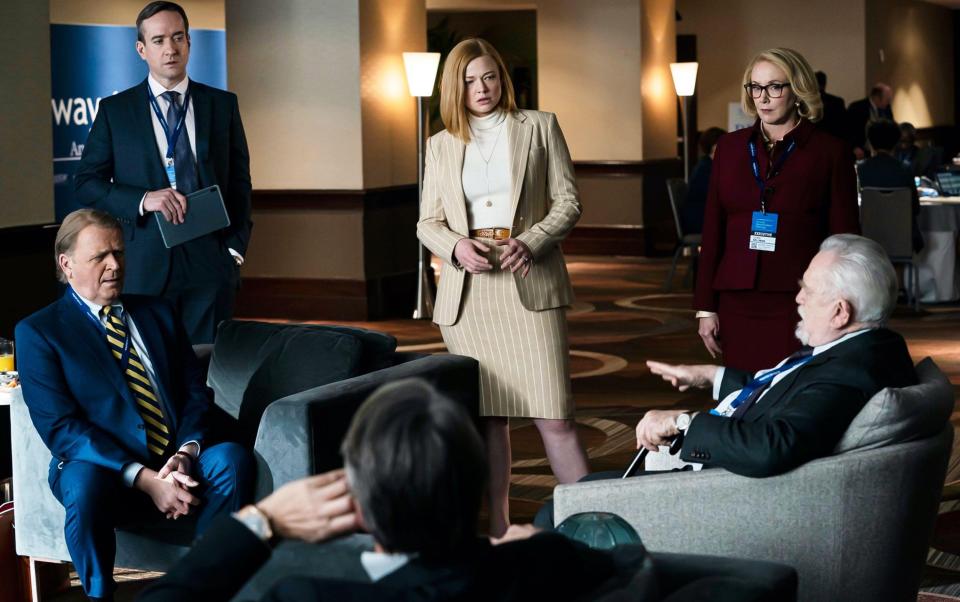
17. GBH (1991)
Channel 4 was at the peak of its powers and daring when it commissioned Alan “Boys From the Blackstuff” Bleasdale to write this blistering seven-parter about how power leads inevitably to corruption. Bleasdale claimed that Robert Lindsay’s Michael Murray wasn’t based on Derek Hatton, the former Deputy Leader of Liverpool City Council and a leading light in Labour’s Militant wing, but no one was fooled (and Hatton was flattered). Bleasdale sets Lindsay’s human IED against Michael Palin’s principled headmaster, in an anarchic, often hilarious piece of mutually assured destruction that is also a savage indictment of authority.
Watch it on: channel4.com
16. I May Destroy You (2020)
Unique, important and challenging television isn’t always the easiest watch and yet Michaela Coel’s follow-up to Chewing Gum somehow manages to be charming as well. That’s some feat in a drama about a young writer who is sexually assaulted after her drink is spiked on a night out (inspired by an incident that happened to Coel herself). But heavy subject matter is dealt with here cheek by jowl with high comedy and the wryest of looks at hook-up culture. Though I May Destroy You was a quintessential drama about millennials, it wasn’t just for millennials, instead providing a superb character study in just 12 pithy half hours. (Read our I May Destroy You review)
Watch it on: BBC iPlayer
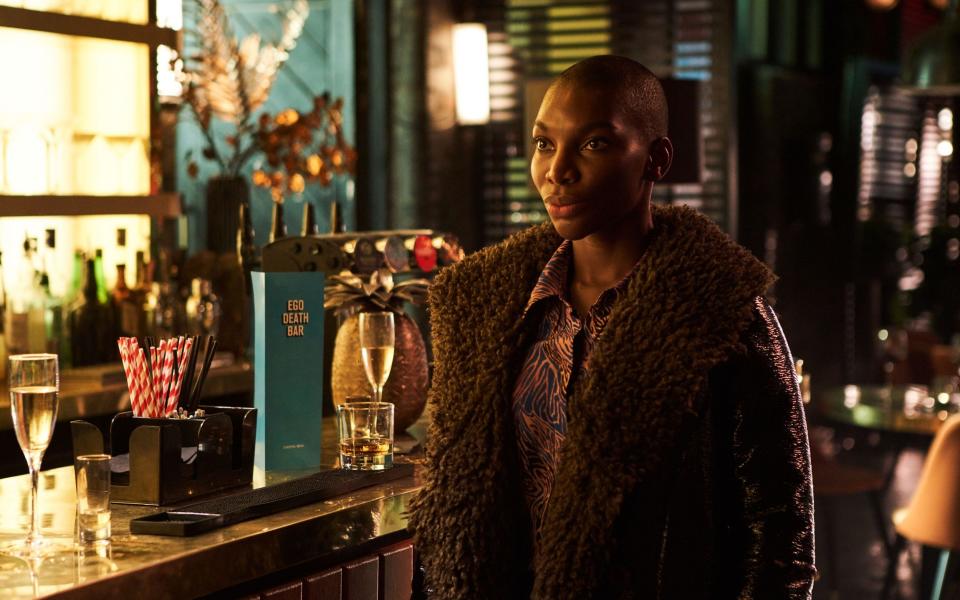
15. A Very Peculiar Practice (1986-1992)
Before he became the go-to guy for period drama, Andrew Davies was a lecturer in English at Coventry College of Education. From that experience, he drew his first and best TV show, a two-series gem about a medical practice at a fictional university. Davies began with a cast of wicked grotesques (Graham Crowden’s bombastic boozer Jock McCannon lives long in the memory, and the eardrums). But the second series shifted up a gear, taking AVPP into surreal, wickedly satirical territory that skewered political correctness, daft bureaucracy and overweening capitalism alike. It was and remains brutally funny as well as enduringly true.
Watch it on: YouTube
14. The West Wing (1999-2006)
Not only did Aaron Sorkin’s what-if White House drama aim high (with Martin Sheen’s President Jed Bartlett a Nobel Laureate economist apt to spout Latin while remonstrating with his own subconscious) but it took those aspirations to a mass market audience. Unlike the great cable dramas of the 90s, The West Wing was a network show, meaning its creative ambitions always had to be democratically packaged. That it succeeded so handsomely (and quibbling about the quality of this or that season after Sorkin left distracts from the cumulative achievement of 156 episodes) is testament to Sorkin’s belief in the power of intellect and argument. It’s good to walk and talk. (Read our final The West Wing review)
Watch it on: channel4.com
13. Mad Men (2007-2015)
When it first began in 2007, Mad Men got rave reviews for how it looked – its depiction of a Madison Avenue ad agency in the 1960s and beyond was pitch perfect, all Brooks Brothers suits, men in trilbys and three-martini lunches. But you only had to watch episode one to see that this was a show that was all about the writing. Creator Matthew Weiner had worked on The Sopranos, but this was his pet project – a paean to the art of persuasive copy and slick verbosity personified in the ultimate self-rebrander, Don Draper (Jon Hamm). So often episodes would glide by without even nodding to anything as vulgar as plot progression, but the speeches, the monologues and yes, the ads themselves always saw you through. (Read our final Mad Men review)
Watch it on: Sky, UKTV Play, Amazon Prime Video or Freevee
12. Boys from the Blackstuff (1982)
Alan Bleasdale took the tarmac gang from his Play for Today The Black Stuff and brought them back to Liverpool, in this distinctly Loachian portrayal of working-class Britain under Thatcher. What saved it from polemic, as so often, was warmth: the black stuff could easily be a description of the comedy that pulses through each of the five episodes, as Yosser (Bernard Hill), Chrissie, Loggo, George and Dixie set about on a cash-in-hand job to renovate… the Department of Employment. The ironic humour continues as the tragedy, particularly Yosser’s, deepens. Black Stuff’s producer Michael Wearing went on to define much of the tone of great BBC drama in the 20th century, producing Our Friends in the North and Edge of Darkness, as well as the 1995 Pride and Prejudice.
Watch it on: BBC iPlayer
11. A Very British Coup (1988)
As television has become more globalised and commercial, and as the BBC and Channel 4 have come under government attack, British TV has become less political, less contemporary. This three-part political conspiracy thriller, however, adapted from MP Chris Mullin’s novel, effectively scripted Jeremy Corbyn’s bizarre rise before it happened. It’s the story of a radical leftie (the ever-excellent Ray McAnally, who died soon after it was screened) who is elected Prime Minister, but soon finds himself ranged against the combined power of the Establishment, especially Sir Percy Browne, the head of MI5. Whatever your politics, however, it’s the consistent excellence of the stagecraft that means A Very British Coup still stands up. Director Mick Jackson also directed Threads (see above): he was an expert in the theatre of the agonisingly credible.
Watch it on: channel4.com or Amazon Prime Video
10. The Underground Railroad (2021)
Overlooked, most likely because it appeared on Amazon Prime alongside all the recommendations for must-have office products, Barry Jenkins’ adaptation of Colson Whitehead’s Pulitzer winning novel is momentous, rhapsodic film-making. It marks one of the peculiar passes of so-called Peak TV when the streamers were clambering over each other to hand Oscar-winning film-makers vast troughs of cash to do with what they pleased. Jenkins did this: a staggeringly beautiful, at times almost mystical exploration of the slave trade in the American South, but one that is anchored in a tense, brutal chase narrative as the slave hunters circle. (Read our The Underground Railroad review)
Watch it on: Amazon Prime Video
9. Our Friends in the North (1996)
Going back to watch classics from decades ago it often strikes you first that TV dramas were both slower, and just longer then. In the case of Peter Flannery’s Our Friends every minute is earned, every second wisely used, because this chronicle of the four Tyneside friends, the three decades and the world that shaped their lives is chock full of tack-sharp lines. Of course, there’s a historical and political element, as the ludicrously fine cast of Christopher Eccleston, Daniel Craig, Gina McKee and Mark Strong map out the contours of British social change from the 60s to the 90s. But what remains in the mind after the credits roll is the tap roots of genuine friendships – it’s in the title and it’s something that television, replete with lovers and fighters, so rarely gets so right.
Watch it on: Amazon Prime Video, Apple TV or BBC iPlayer
8. Chernobyl (2019)
An astonishing feat of dramatizing without melodrama, this five-part miniseries from our own Sister Pictures told the true story of one of the worst man-made disasters in history. Written, incredibly, by the guy who wrote Scary Movie and the Hangover sequels (Craig Mazin), its brilliance was in pulling focus from the macro – the scale and ramifications of the catastrophe – to the micro – the error and cowardice and woeful arse-covering that followed. That is how the best history is always told, and Chernobyl stands as both vital document as well as a scintillating drama. (Read our Chernobyl review)
Watch it on: Amazon Prime Video or Apple TV
7. Breaking Bad (2008-2013)
Television was awash with careening male anti-heroes (Tony Soprano, Don Draper), written by difficult men called David (Milch, Simon) when Walter White came along, but Breaking Bad broke that mould too. In order to follow White’s dark picaresque from cancer-stricken high school chemistry teacher in his pants to meth maker and drug kingpin, a performance of staggering depth was required. In Bryan Cranston, best known at that point as a sitcom dad in Malcolm in the Middle, creator Vince Gilligan found his man. How does a good man end up doing bad things? To this question, TV fiction gave a profoundly unsettling, totally convincing answer. (Read our final Breaking Bad review)
Watch it on: Netflix

6. Pennies From Heaven (1978)
Dennis Potter had experimented with his signature dramatic device – a form of interior monologue in which characters mime to songs from the 1930s to express how they’re feeling – before, but it was in Pennies From Heaven, through the mouth of a never-better Bob Hoskins that he perfected his art. Directed by Piers Haggard (Boat Story’s Daisy Haggard’s uncle), BBC audiences had never seen anything like it. Hoskins plays Arthur Parker, a 1930s travelling sheet-music salesman, who dreams of happiness but knows not where to find it. It’s a common story but one told in a skewed fantasy world that only Potter could have devised.
Watch it on: Amazon Prime Video
5. Homicide: Life on the Street (1993-1999)
Before he widened his aperture with The Wire, David Simon created the best police procedural there’s ever been. Best, because it was based on Homicide: A Year on the Killing Streets, Simon’s book chronicling his time as a crime journalist in Baltimore. Many come to Homicide looking for tendrils that will lead them back to The Wire, but Homicide stands proudly on its own. With Barry Levinson (Rain Man), a Baltimore native, at the helm, alongside Tom Fontana (St Elsewhere), it switched the focus from the crimes to the people – victims, criminals, detectives – that they affected. And what detectives – no more the omniscient, affable Columbos or Jessica Fletchers. Life on the Street was about dense, intersecting plotlines and messed-up cops. The late Andre Braugher in particular earned his stripes on this beat.
Watch it on: YouTube
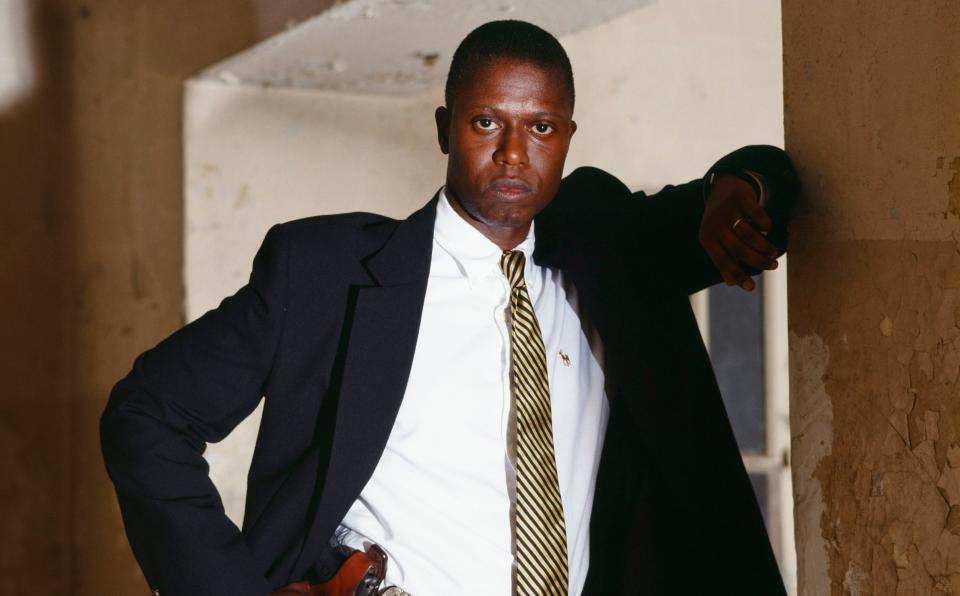
4. Brideshead Revisited (1981)
John Mortimer adapting Evelyn Waugh in locations so lavish (Venice, Oxford, Castle Howard), they could have doubled National Trust subscriptions at a shot – that would have been one thing… but add a cast list that included Sir Laurence Olivier, Claire Bloom, Anthony Andrews, Jeremy Irons in career-defining mode, and John Gielgud waltzing off with every scene he was in as if it were gift-wrapped, and you have Granada TV’s finest hour. Actually, hours: the apogee of 80s television ran to 11 parts, and there was gold (and Waugh’s humour) in every single minute. What strikes on a contemporary viewing is the blithe confidence of British drama production then. God we were good, and God, did we know it.
Watch it on: ITVX or Apple TV
3. Cathy Come Home (1966)
It’s easy to be dazzled by the evident influence of Ken Loach and Jeremy Sandford’s masterpiece over almost all TV drama that’s followed… and thereby overlook its quality. It is a brilliant piece of condensed storytelling and remains hugely powerful, telling the story of how a family spirals into poverty and then homelessness with a horrible, state-sanctioned inevitability. Shot in the documentary style that would become Loach’s calling-card, in hindsight, you realise it wouldn’t have worked any other way: in your living room while also in theirs. Nearly 60 years on, that verité conceit has become the de facto style for most contemporary television.
Watch it on: Apple TV
2. The Sopranos (1999-2007)
The show that gilded the second golden age of television is the ultimate family drama. Not because most families have a murderous racist in a scruffy dressing gown at their head, but because all families have to navigate the gap between loving someone and finding them unbearable that is at the centre of The Sopranos. TV earned the status of art at around the point where The Sopranos showed that characters didn’t have to be likeable for viewers to still root for them. And with the direction of some of HBO’s future greats – Alan Taylor, Tim Van Patten – The Sopranos also showed cinema where its future lay.
Watch it on: Amazon Prime Video, Sky or Now
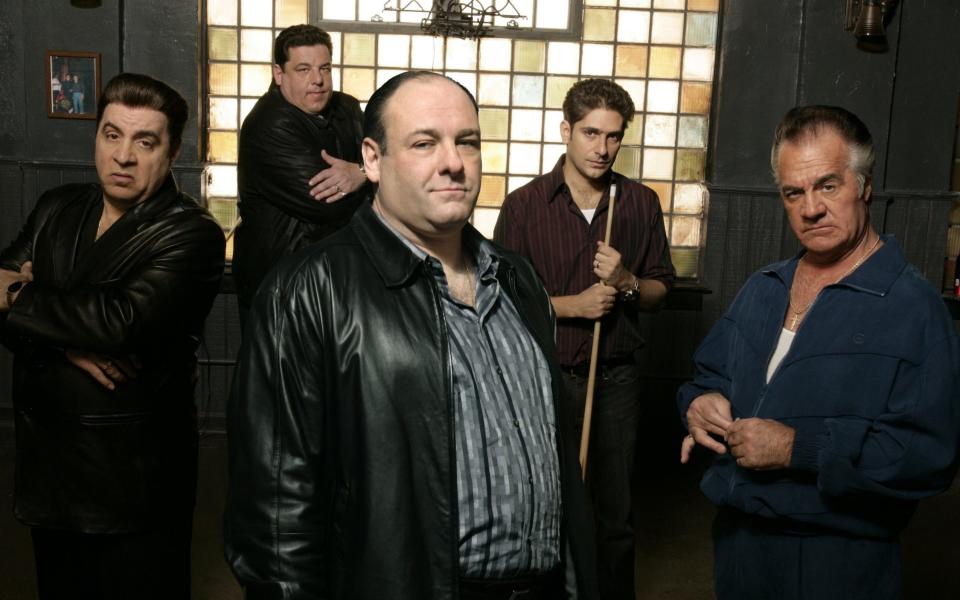
1. The Wire (2002-2008)
The best police drama, the best social drama and the best family drama is also the best drama overall. It’s telling that most people’s memories of David Simon’s greatest work are linked to character more than what actually happened across the five seasons: think of Jimmy McNulty, the Bunk, Omar and Stringer Bell (among others) and you instantly evoke a portrait of a whole society – one which (this being Simon’s point) politics, power and bureaucracy were systematically ignoring. The Wire chose to look, and look carefully at what was really happening in Baltimore (and by extension, across America.) Simon’s famous line about his disdain for “the casual viewer” now comes with a coda – with The Wire, he made TV viewing itself less casual, because with writing this good, acting this vital, you could do nothing but (as it said on the first season poster): “Pay Attention.” (Read our final The Wire review)
Watch it on: Sky or Now

 Yahoo News
Yahoo News 
